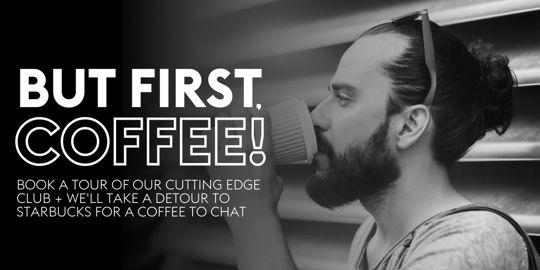Breathing. Something we all do everyday, without thinking about it. In a world where mental health problems are commonplace, and stress is seen as normal, maybe it’s about time we started thinking more about the simple things. In this blog, we are going to talk about the benefits of breathing exercises on your mental health, and give you some to take away and try yourself.
Benefits of factoring breathing exercises into your daily life:
Stress busting… Deep, intentional breathing activates the body's relaxation response, signalling to the nervous system that it's safe to calm down.
Anxiety management… By bringing attention to the present moment through the breath, individuals can find relief from the grip of anxiety.
And focus… Breathing exercises have been linked to improved cognitive function and concentration. By balancing the flow of air through each nostril, this practice harmonises the left and right hemispheres of the brain, fostering mental clarity and focus.
Sleep… Deep breathing exercises before bedtime, promote relaxation and help to quiet the mind. This can provide an accessible and drug-free approach to addressing sleep-related challenges.
Emotional response… Breathing exercises allow individuals to create a pause between a stimulus and their emotional response, providing a greater sense of control over their reactions.
All sounds good huh? Now, we’ve pulled together some of the best (and easiest!) breathing exercises, for you to try at home…
-
Deep Diaphragmatic Breathing (Abdominal Breathing):
Deep diaphragmatic breathing is a fundamental technique that forms the basis of many other practices. To perform this:
-
Sit or lie down in a comfortable position.
-
Place one hand on your chest and the other on your abdomen.
-
Inhale deeply through your nose, allowing your abdomen to expand.
-
Exhale slowly through your mouth, feeling your abdomen contract.
This technique activates the body's relaxation response, reducing stress and promoting a sense of calm.
- Box Breathing (Square Breathing):
Box breathing is a structured technique that helps regulate the breath and bring about a sense of balance. Here's how to practise it:
-
Inhale for a count of four.
-
Hold your breath for a count of four.
-
Exhale for a count of four.
-
Hold your breath again for a count of four.
Repeat this process for several cycles, adjusting the count as needed. Box breathing is an effective tool for managing anxiety and enhancing concentration.
-
4-7-8 Breathing (Relaxing Breath):
Developed by Dr. Andrew Weil, the 4-7-8 breathing technique is renowned for its calming effects. Follow these steps:
-
Inhale quietly through your nose for a count of four.
-
Hold your breath for a count of seven.
-
Exhale completely through your mouth for a count of eight.
This technique helps to relax the nervous system and can be practised anywhere, making it a valuable tool for stress management.
-
Alternate Nostril Breathing (Nadi Shodhana):
A yogic breathing technique, Nadi Shodhana, aims to balance the two hemispheres of the brain and promote a sense of harmony. Here's how to practise it:
-
Sit comfortably with your spine straight.
-
Use your right thumb to close off your right nostril and inhale through the left nostril.
-
Close off the left nostril with your right ring finger, release the right nostril, and exhale through the right side.
-
Inhale through the right nostril, close it off, release the left nostril, and exhale through the left side.
Repeat this cycle for several minutes. Nadi Shodhana is known for reducing stress and improving focus.
-
Mindful Breathing:
Mindful breathing involves bringing full attention to each breath, focusing on the present moment without judgement. To practise mindful breathing:
-
Find a quiet space and sit comfortably.
-
Direct your attention to your breath, noticing each inhale and exhale.
-
If your mind wanders, gently bring it back to your breath without judgement.
Mindful breathing is a cornerstone of mindfulness meditation and can enhance self-awareness, reduce anxiety, and improve overall mental well-being.
In the quest for mental well-being, the breath emerges as a powerful and accessible tool. Breathing techniques offer a pathway to stress reduction, anxiety management, improved focus, better sleep, emotional regulation, and heightened mindfulness. By integrating these practices into our daily lives, we empower ourselves with simple yet profound tools to navigate the complexities of the mind, fostering a sense of peace and resilience in the face of life's inevitable challenges. So… take a deep breath.



